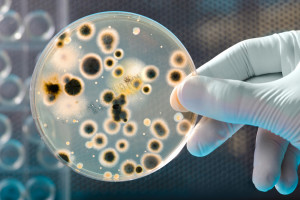Necrotizing fasciitis, also known as “flesh-eating disease,” is a rare but serious bacterial infection. The infection can enter the body through respiratory droplets, such as a sneeze or cough, through a surgical incision, or a simple cut or scrape.
Necrotizing fasciitis, also known as “flesh-eating disease,” is a rare but serious bacterial infection. The infection can enter the body through respiratory droplets, such as a sneeze or cough, through a surgical incision, or a simple cut or scrape.
However, unlike many other infections this one spreads very fast. The bacteria produce toxins that destroy muscles, skin and underlying body tissues.
Streptococcus bacteria, the same bacteria that cause strep throat, are one of the most common causes for flesh eating disease. Less commonly, other bacteria may cause this infection. At the onset you could feel flu-like symptoms and severe pain in the infected area. Within a day or so, the work of the destructive bacteria becomes obvious: swollen, dark tissues and blisters filled with black fluid develop on the infected body part. A person with this disease may develop shock. The infected person requires immediate hospitalization to receive antibiotics and to have infected tissue surgically removed.
According to the Centers for Disease Control, necrotizing fasciitis kills about 20% of the people it affects, but complications due to toxic shock can push the mortality rate to 50%. Survivors may face amputation, disfiguration, and months of skin grafts to repair damaged areas.
Anyone can be infected; however, those with weakened immune systems, people who have diabetes, alcohol and drug abusers, the elderly, and those who undergo abdominal surgery are at higher risk.
The best way to defend yourself against these bacteria is to wash your hands thoroughly and often and keep your skin intact.
– Written by Faith Hirschbein, Office Coordinator, Infection Prevention and Control, Sinai Hospital, and Jackie Daley, Director Infection Prevention and Control, Sinai Hospital









